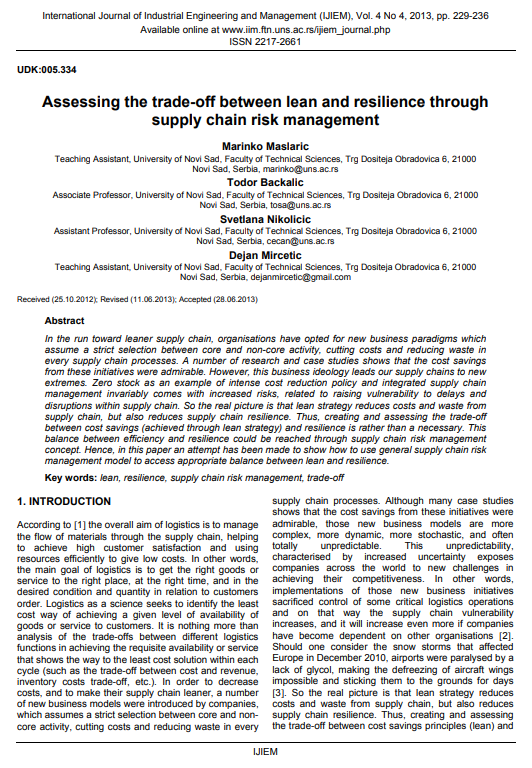Assessing the Trade-Off Between Lean and Resilience Through Supply Chain Risk Management

Published 2013-12-30
abstract views: 236 // FULL TEXT ARTICLE (PDF): 0
Keywords
- lean,
- resilience,
- supply chain risk management,
- trade-off
How to Cite
Copyright (c) 2023 International Journal of Industrial Engineering and Management

This work is licensed under a Creative Commons Attribution 4.0 International License.
Abstract
In the run toward leaner supply chain, organisations have opted for new business paradigms which assume a strict selection between core and non-core activity, cutting costs and reducing waste in every supply chain processes. A number of research and case studies shows that the cost savings from these initiatives were admirable. However, this business ideology leads our supply chains to new extremes. Zero stock as an example of intense cost reduction policy and integrated supply chain management invariably comes with increased risks, related to raising vulnerability to delays and disruptions within supply chain. So the real picture is that lean strategy reduces costs and waste from supply chain, but also reduces supply chain resilience. Thus, creating and assessing the trade-off between cost savings (achieved through lean strategy) and resilience is rather than a necessary. This balance between efficiency and resilience could be reached through supply chain risk management concept. Hence, in this paper an attempt has been made to show how to use general supply chain risk management model to access appropriate balance between lean and resilience.
Article history: Received (25.10.2012); Revised (11.06.2013); Accepted (28.06.2013)

